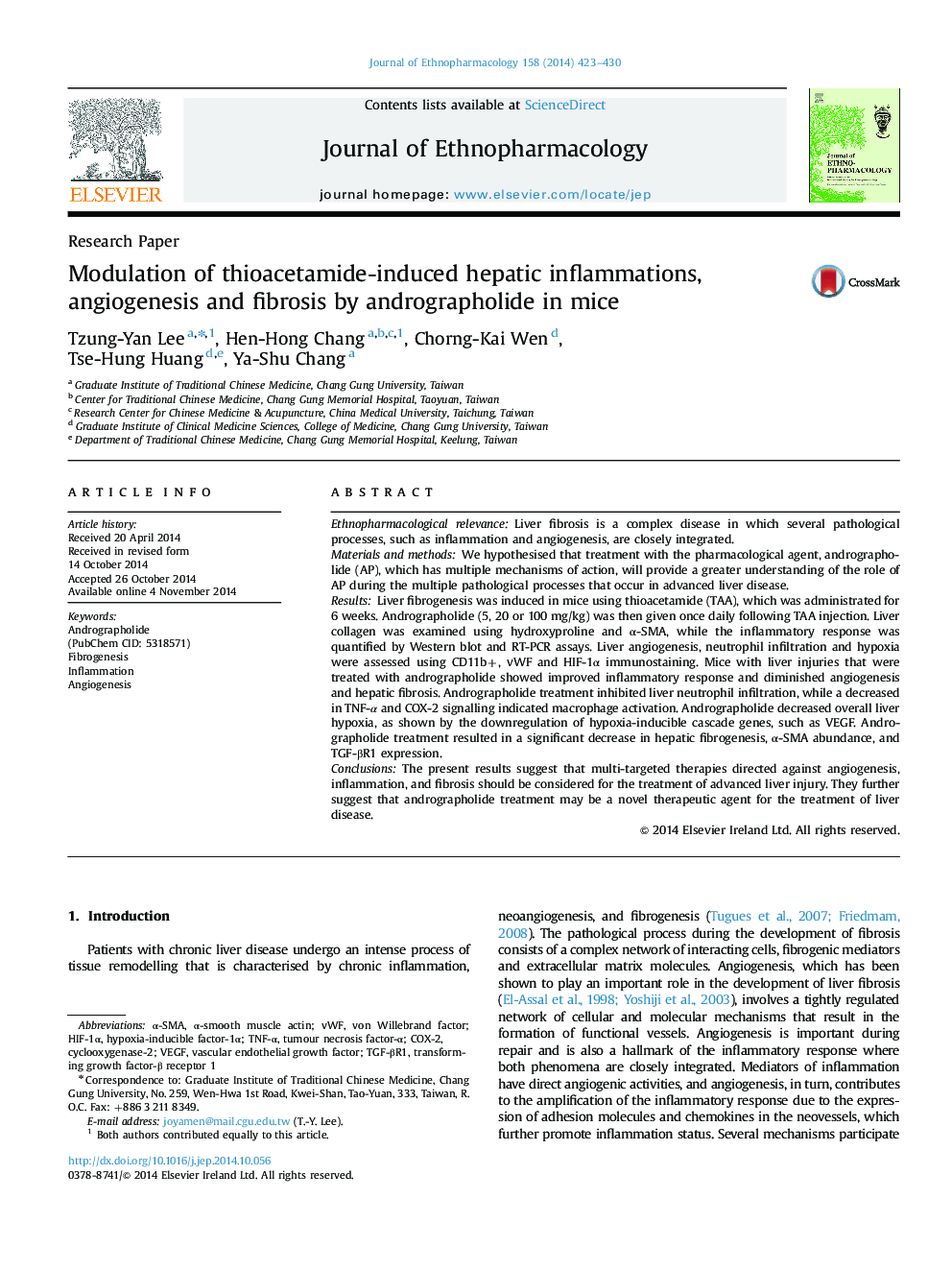| Article ID | Journal | Published Year | Pages | File Type |
|---|---|---|---|---|
| 5835989 | Journal of Ethnopharmacology | 2014 | 8 Pages |
Ethnopharmacological relevanceLiver fibrosis is a complex disease in which several pathological processes, such as inflammation and angiogenesis, are closely integrated.Materials and methodsWe hypothesised that treatment with the pharmacological agent, andrographolide (AP), which has multiple mechanisms of action, will provide a greater understanding of the role of AP during the multiple pathological processes that occur in advanced liver disease.ResultsLiver fibrogenesis was induced in mice using thioacetamide (TAA), which was administrated for 6 weeks. Andrographolide (5, 20 or 100 mg/kg) was then given once daily following TAA injection. Liver collagen was examined using hydroxyproline and α-SMA, while the inflammatory response was quantified by Western blot and RT-PCR assays. Liver angiogenesis, neutrophil infiltration and hypoxia were assessed using CD11b+, vWF and HIF-1α immunostaining. Mice with liver injuries that were treated with andrographolide showed improved inflammatory response and diminished angiogenesis and hepatic fibrosis. Andrographolide treatment inhibited liver neutrophil infiltration, while a decreased in TNF-α and COX-2 signalling indicated macrophage activation. Andrographolide decreased overall liver hypoxia, as shown by the downregulation of hypoxia-inducible cascade genes, such as VEGF. Andrographolide treatment resulted in a significant decrease in hepatic fibrogenesis, α-SMA abundance, and TGF-βR1 expression.ConclusionsThe present results suggest that multi-targeted therapies directed against angiogenesis, inflammation, and fibrosis should be considered for the treatment of advanced liver injury. They further suggest that andrographolide treatment may be a novel therapeutic agent for the treatment of liver disease.
Graphical abstractDownload high-res image (193KB)Download full-size image
